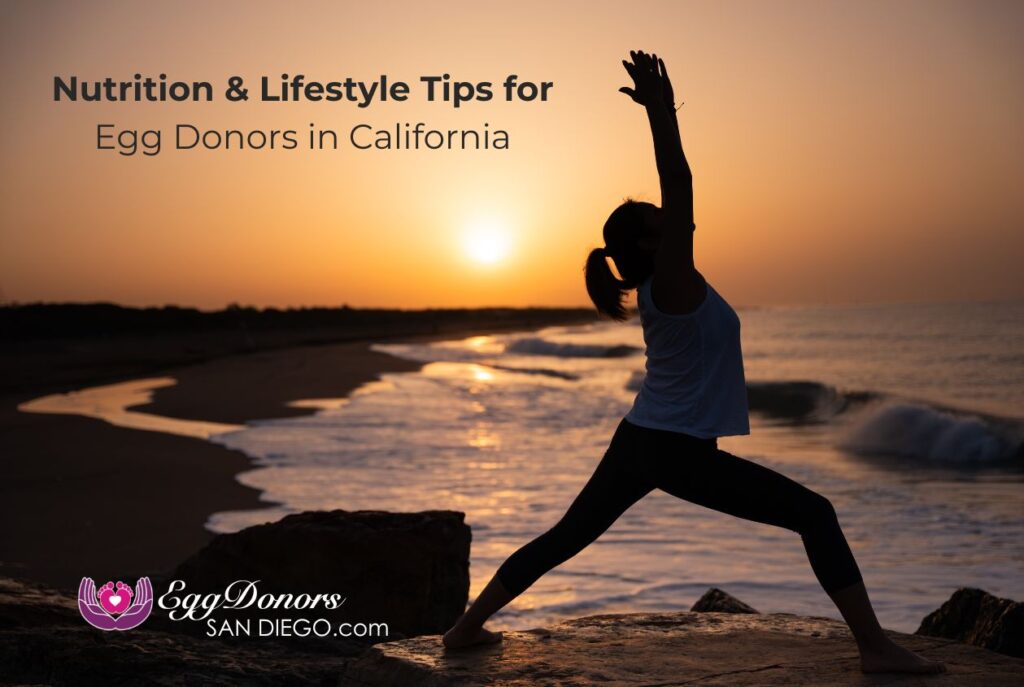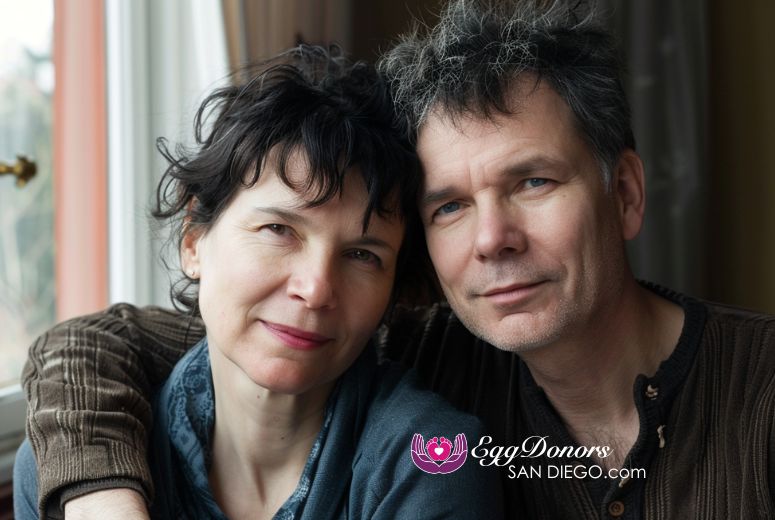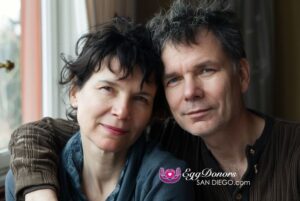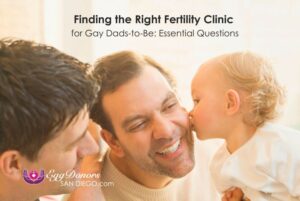Becoming an egg donor in California is both a generous and transformative experience—one that requires intentional preparation and mindful care of your body. The choices you make in your daily nutrition, exercise, and emotional wellness directly influence not only your health but also the success of your egg donation journey.
“Your health and well-being directly impact the quality of your eggs,” explains Dr. Minoos Hosseinzadeh, founder and medical director of Fertility Institute of San Diego and EggDonorsSanDiego.com. “By focusing on balanced nutrition, hydration, and stress management, egg donors can significantly enhance their donation experience and outcomes.”
Understanding Egg Donor Nutrition
The foundation of a healthy donation process begins with proper nutrition. What you eat affects your hormone balance, follicle growth, and egg development. Nourishing your body with nutrient-rich, whole foods helps create an ideal internal environment for egg production.
Best Foods for Healthy Egg Production
- Lean Proteins: Organic poultry, wild-caught fish like salmon, and plant-based proteins such as quinoa and lentils support follicular health.
- Complex Carbohydrates: Whole grains, oats, and sweet potatoes provide steady energy and regulate insulin levels.
- Healthy Fats: Avocados, nuts, olive oil, and chia seeds strengthen cell membranes and optimize egg quality.
- Antioxidant-Rich Fruits and Vegetables: Blueberries, kale, spinach, and pomegranate combat oxidative stress that can damage eggs.
“Think of your ovaries as miniature ecosystems,” says Dr. Hosseinzadeh. “They thrive when nourished with antioxidants, vitamins, and clean, wholesome nutrition.”
What to Eat Before Egg Donation
In the weeks before your egg donation cycle, consistency in your diet is key. Focus on eating real, unprocessed foods and maintaining steady energy throughout the day.
- Iron-rich foods like spinach, beets, and lean red meat improve oxygen delivery to reproductive organs.
- Vitamin D and Calcium support follicle maturation and hormone balance.
- Hydration: Drink at least two liters of water daily to aid hormone transport and cellular health.
- Limit caffeine and alcohol: Both can affect hydration and interfere with hormone stability.
Supplements to Improve Egg Quality Before Donation
- CoQ10 (Ubiquinol): Improves energy production within egg cells and supports vitality.
- Omega-3 Fatty Acids: Reduce inflammation and improve follicular fluid quality.
- Prenatal Vitamins: Provide foundational vitamins and minerals essential for reproductive health.
- Vitamin E and Selenium: Protect ovarian tissue from oxidative damage.
“Every donor’s physiology is unique,” emphasizes Dr. Hosseinzadeh. “We provide individualized supplement and nutrition guidance to ensure safety and optimal results.”
Lifestyle Changes for Egg Donors in California
Nutrition is only one part of the equation. A balanced lifestyle helps prepare your body physically and emotionally for the process.
Exercise and Self-Care for Egg Donors
- Yoga and stretching for relaxation and flexibility
- Walking and swimming for gentle cardiovascular support
- Avoid heavy lifting or high-intensity routines during stimulation
Regular movement promotes blood flow to reproductive organs and enhances emotional well-being.
Sleep, Hydration, and Stress Management
Hormonal health depends on how well you rest and recover. Donors who prioritize sleep and stress reduction often experience smoother cycles.
- Aim for 7–9 hours of quality sleep each night.
- Keep a consistent sleep schedule to regulate your natural rhythms.
- Practice mindfulness, meditation, or breathing techniques to manage stress.
“Cortisol, the stress hormone, can inhibit follicle development,” notes Dr. Hosseinzadeh. “By prioritizing rest and emotional balance, donors can improve both their comfort and their results.”
Foods to Avoid Before Hormone Stimulation
- Processed or fried foods
- Sugary snacks and drinks
- Soy-heavy foods that alter estrogen levels
- Excess caffeine and alcohol
Preparing for Egg Retrieval: A Wellness Blueprint
Before Retrieval:
- Stay hydrated and include electrolyte-balanced fluids.
- Eat light, easily digestible meals such as soups, smoothies, and steamed vegetables.
- Avoid strenuous activity for 7 days before retrieval.
After Retrieval:
- Continue hydration and nutrient-rich meals.
- Rest and allow your body to recover naturally.
- Gentle walking helps improve blood circulation and reduces discomfort.
“At EggDonorsSanDiego.com, every donor receives a personalized plan for pre- and post-retrieval wellness,” says Dr. Hosseinzadeh. “Your comfort, health, and safety always come first.”
FAQ: Egg Donor Nutrition and Lifestyle
Yes, but only light activity such as walking or gentle yoga. Avoid anything that causes strain, jostling abruptly,or abdominal pressure.
High stress can elevate cortisol and disrupt ovulation. Relaxation practices like meditation or journaling are helpful.
Your Next Step
If you’re ready to begin your egg donation journey, take time to prepare your body and mind. At EggDonorsSanDiego.com, Dr. Hosseinzadeh and her dedicated team provide individualized nutrition and lifestyle guidance to ensure you feel supported and confident throughout the process.
If you’re ready to start your egg donation journey, click here.









